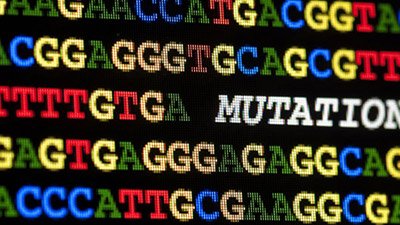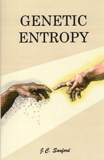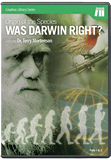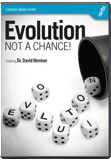
A Reminder That DNA Mutations Are More Counterproductive Than Helpful
ScienceNOW: “DNA: Too Much—or Too Little—Can Be a Bad Thing” From mid-November, a reminder that mutations are nearly always counterproductive.
A linchpin to the Darwinian model is that, once in every great while, a mutation occurs that adds something to an organism—a new feature that allows that organism to better survive in its environment.
While scientists have never observed any information-adding mutations, we are aware of numerous destructive mutations.
Part of the great challenge (too great, in our opinion) to Darwinism is finding enough of these mutations to account for the incredible diversity and “apparent” design in life. Even considering the supposed hundreds of millions of years of evolution, remember that every element of every intriguing design, every social behavior, every bit of biodiversity must have sprung up through these unobserved, extremely unlikely information-adding mutations. Not only that, but evolutionists are forced, by their interpretations of the fossil record and evolutionary lineages, to conclude that many sets of information-adding mutations occurred not just one unlikely time, but numerous times, and often in conjunction with others.
While scientists have never observed any information-adding mutations, we are aware of numerous destructive mutations—those that destroy or corrupt good information, and thus do the opposite of what evolution would require. ScienceNOW’s Jennifer Couzin reports on a disease known as retinoblastoma, a childhood eye cancer that is related to at least one mutation and may be traceable to others.
According to Couzin, “All youngsters who develop retinoblastoma in both eyes inherited a defective gene that caused the disease.” However, in eight out of ten cases, neither parent has the defect-causing mutation; rather, the mutation somehow arose in the male sperm. Now, researchers at the University of Pennsylvania and Children’s Hospital of Philadelphia believe they’ve found a link between the fathers’ genetic damage and their likelihood of producing the retinoblastoma mutation in sperm.
Specifically, the scientists were looking at regions of DNA called copy number variations, or CNVs. Focusing on 37 CNVs considered large (involving more than half a million DNA bases), the team found that fathers producing the retinoblastoma mutation had more CNVs than others—about eight, on average, versus three.
While the research is still in nascent stages, University of Pennsylvania geneticist Elizabeth Chao speculates that the DNA in fathers with numerous CNVs may be more susceptible to radiation damage. Or, CNVs may merely indicate a “less stable genome,” although the fathers aren’t at a higher risk of cancer themselves.
Related studies have connected a high number of CNVs to cancer-causing Li-Fraumeni syndrome as well as schizophrenia. These are sad reminders of the Fall and consequential Curse in Genesis 3—and reminders that observational science continues to find that genetic mutations are frequently—though not always—a source of disease, and never a source of hypothesized evolutionary healing.
For more information:
Remember, if you see a news story that might merit some attention, let us know about it! (Note: if the story originates from the Associated Press, Fox News, MSNBC, the New York Times, or another major national media outlet, we will most likely have already heard about it.) And thanks to all of our readers who have submitted great news tips to us.
(Please note that links will take you directly to the source. Answers in Genesis is not responsible for content on the websites to which we refer. For more information, please see our Privacy Policy.)
Recommended Resources

Answers in Genesis is an apologetics ministry, dedicated to helping Christians defend their faith and proclaim the good news of Jesus Christ.
- Customer Service 800.778.3390
- © 2024 Answers in Genesis







